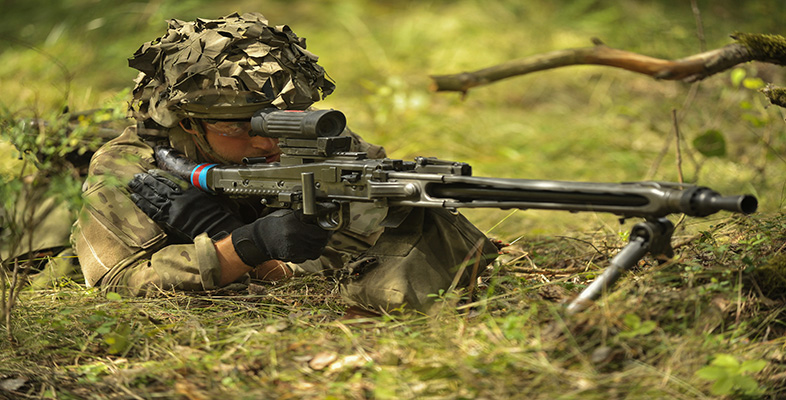The epistemological argument
The epistemological argument is so called because it has to do with knowledge; ‘epistemology’ means ‘theory of knowledge’. The argument rests on what combatants know, and what they can reasonably be expected to know.
In general, combatants do not have a fully informed understanding either of morality or of international affairs, and so consequently they cannot know about the justness of their cause; it is simply too complicated. They cannot reasonably be expected to make moral judgements about the justice of their cause. This being the case, they are entitled to act as if they were fighting in a just cause. Ordinary combatants can legitimately defer to their leaders, on the basis that these people are better informed about the facts of the war and are in a better position to determine its justice.
Note that the argument applies equally to just and unjust combatants. The epistemological argument supports the moral equality of combatants. Both sides are justified in deferring to their leaders and so are justified in fighting if they are ordered to do so. If both are justified in fighting, then they are morally equal.
McMahan makes two replies to this. The first depends on distinguishing the blameworthiness of an action from the wrongness of an action. If I am not in a position to know that an action of mine is wrong, then generally I am not blameworthy for that action. Nonetheless, the action itself is wrong. If I did not know that a drink I gave someone was poisoned, then I cannot be blamed for poisoning them. Nevertheless, it is wrong to give someone a poisoned drink.
McMahan’s sharpest criticism of Walzer’s explanation of the moral equality of combatants is that Walzer slips between two different moral questions: whether we act in a way for which we are or are not blameworthy and whether we act in a way that is morally impermissible or morally permissible. Here is what McMahan says:
In various places Walzer also identifies the absence of criminality with the absence of blameworthiness. ‘It would be very odd,’ he claims, ‘to praise Rommel for not killing prisoners unless we simultaneously refused to blame him for Hitler’s aggressive wars. For otherwise he is simply a criminal, and all the fighting he does is murder or attempted murder.’ In short, Walzer claims that if an unjust combatant is blameless, he is not a criminal, that if he is not a criminal, he is the moral equal of a just combatant, and that he is therefore permitted to fight if the just combatant is.
The mistake here is to ignore the possibility that blamelessness implies nothing more than that the unjust combatant is excused. That a person is blameless does not entail that he or she has acted permissibly; for both those who act permissibly and those who act wrongly but with a full excuse are blameless.
That is, McMahan convicts Walzer of an unwarranted slippage , from excusability to justifiability. The excusability of unjust combatants does not entail the justifiability of their actions.
McMahan’s second reply questions whether unjust combatants even escape being blameworthy:
While it’s sometimes reasonable for unjust combatants to believe that their war is just, it isn’t always. But the doctrine of the moral equality of combatants doesn’t hold that participation in an unjust war can be permissible provided that one reasonably believes that the war is just; it holds, rather, that combatants aren’t responsible for whether their war is just and therefore don’t do wrong if they obey an order to fight even if they reasonably and correctly believe that the war is unjust.
In Killing in War , McMahan outlines a series of tests that a serving combatant can ask themselves about whether they are fighting in a just or unjust war. The stakes are much higher than in many other cases where one is obliged to come to a judgement about the justification of one’s actions. So a soldier should ask: is this war on my home territory? Am I fighting alongside a native army? What is said by Human Rights Watch, the UN and other agencies? These tests may strike you as a little rough and ready, but they certainly seem to indicate there are mechanisms that can be applied by combatants at an individual level to make a judgement about the justice of their cause.
